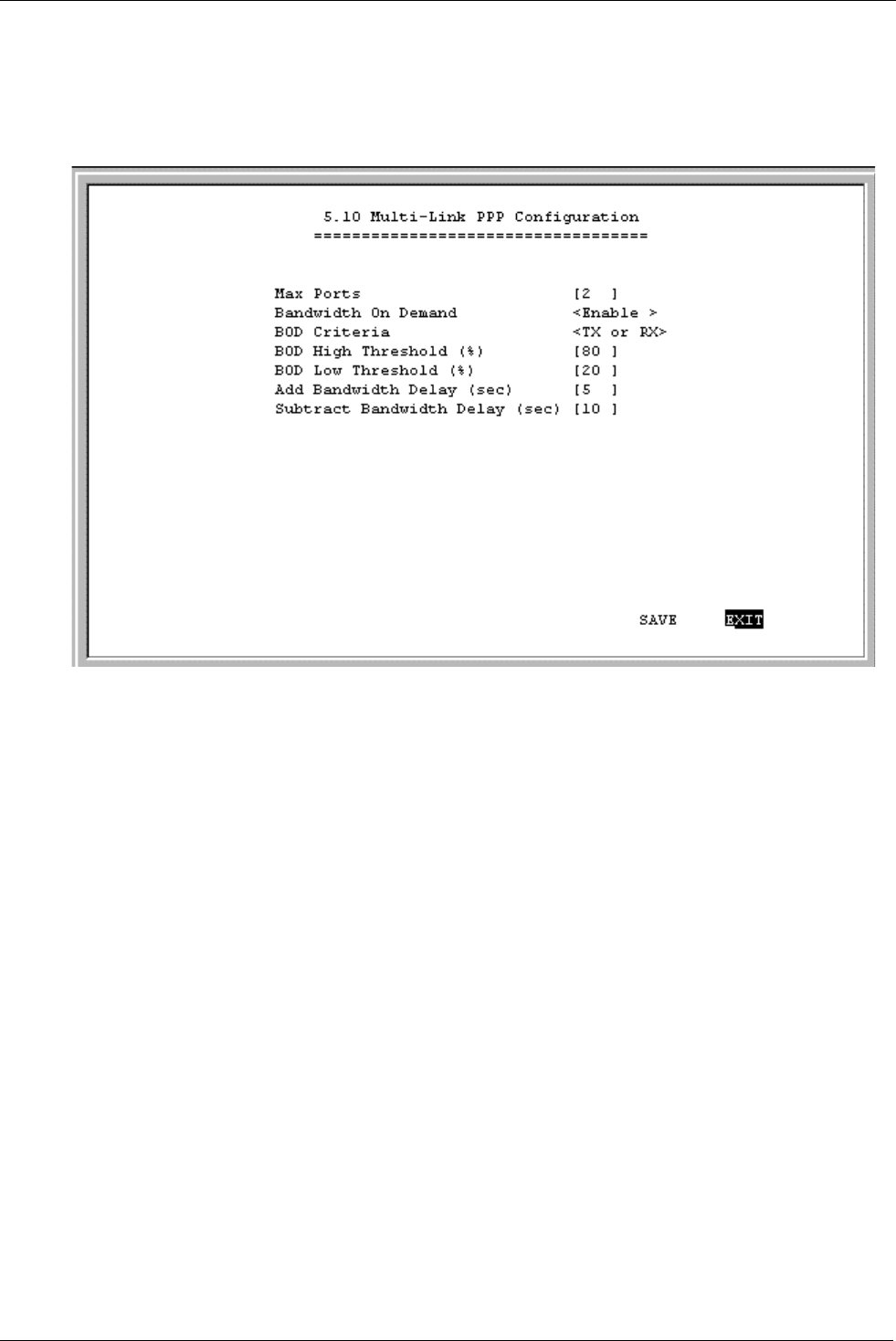
DI-1162/DI-1162M Remote Access Router
85
A static implementation of MLPPP is achieved when BOD is disabled but the WAN ports have Multi-Link
enabled. In this case, when the two WAN ports have established a connection, the router will check to see if they
are connected to the same source and whether the source supports MLPPP. If both conditions are met, the router
will automatically bundle the two links together as an MLPPP connection.
Items in the screen are described as follows:
♦
Max Ports
– Maximum ports allowed per multi-link bundle.
♦
Bandwidth on Demand
– Enables or disables BOD. When enabled, BOD will manage the implementation of
MLPPP using the parameters defined in this window.
♦
BOD Criteria
– Either
TX
,
RX
or
TX or RX
, where
TX
is Transmit and
RX
is Receive. The parameter defined
here is used when monitoring the BOD High Threshold and BOD Low Threshold.
♦
BOD High Threshold (%)
– (0 to 100) The throughput value as a percentage of total bandwidth which will
cause the next WAN port having Multi-Link PPP enabled to dial up and add bandwidth to the connection.
This value, however, must be constantly exceeded for the time designated in the Add Bandwidth Delay field
before the next WAN port dials out.
♦
BOD Low Threshold (%)
– (0 to 100) The throughput value as a percentage of total bandwidth which will
cause the highest numbered WAN port in the MLPPP bundle to hang up, thus subtracting bandwidth from the
connection. Before actually hanging up however, the throughput must be below this value for the time
designated in the Subtract Bandwidth Delay field.
♦
Add Bandwidth Delay
(sec)
– (0 to 999) The amount of time in seconds the router will wait and sample the
BOD Criteria before adding bandwidth once the throughput exceeds the BOD High Threshold. This prevents
costly bandwidth from being unnecessarily added due to temporary bursts in traffic.
♦
Subtract Bandwidth Delay
(sec)
– (0 to 999) The amount of time in seconds the router will wait and sample
the BOD Criteria before subtracting bandwidth once the throughput falls below the BOD Low Threshold. This
prevents bandwidth from being unnecessarily subtracted due to temporary lulls in traffic.


















